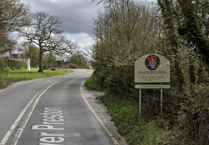ON the 18th of July, a significant event will unfold outside the Royal Courts of Justice in London. The Stars Are For Everyone and Right to Roam organisations, along with hikers, campers and advocates of greater access to England, will gather to rally and support the appeal by Dartmoor National Park Authority.
The appeal aims to overturn a high court ruling in January, that repealed the long-standing right to wild camping in Dartmoor National Park. The ruling prompted backlash from many, triggering a thousands-strong rally on Stall Moor, one of the largest access protests in British history.
This new rally seeks to support DNPA in appealing the ruling, whilst also advocating for broader land reforms in England.
Background
For decades, Dartmoor National Park has held a unique distinction as the only place in England where wild camping was legally permitted. This privilege allowed individuals and families to partake in the tradition of camping amidst the park's breathtaking landscapes. However, in January of this year, a high court ruling overturned this right, replacing it with a permissive scheme that was deemed 'inadequate and precarious.'
Arwen Strickland created this video to explain their views on the ruling and the appeal
Dartmoor National Park holds a special place in the hearts of many outdoor enthusiasts and adventurers. It has served as a open wilderness for young people to participate in expeditions such as Ten Tors and Duke of Edinburgh.
Critics of the ruling argue that the park's unique environment offers life-shaping experiences and valuable opportunities for personal growth.
The Appeal and Rally
The upcoming appeal at the High Court, spearheaded by Dartmoor National Park Authority, aims to challenge the regressive ruling and reinstate the right to wild camping in Dartmoor. To support the appeal, The Stars Are For Everyone and Right to Roam have organised a rally outside the Royal Courts of Justice.
A spokesperson for the campaign group Right to Roam, stated: 'For decades Dartmoor National Park has been the only place in England where wild camping is legally permitted. But that right was overturned by a high court ruling in January this year, leaving a flimsy and fragile permissive scheme in its place. This July, the High Court will hear Dartmoor National Park Authorities appeal against this regressive ruling.
'We will rally outside the court in defiance of this attempt by wealthy landowners to restrict rights long enjoyed by everyone. Come and join us in support of the appeal, contribute your own ideas about 'what if' wild camping was extended to other parts of the UK as part of an English Land Reform Act - and what we can learn from countries which have done this, such as Scotland.
'Camping on Dartmoor is a rite of passage for young people taking part in expeditions such as Ten Tors and Duke of Edinburgh, as well as offering unique and life-shaping experiences for individuals and families - enjoyed for generations.
'Since the January ruling, public support for greater public access to the countryside - including camping - has skyrocketed. We will rally outside the high court to appeal the ruling - but also to extend and strengthen our rights of access in England.'
Joining the Rally
The rally will take place on the 18th of July at the Royal Courts of Justice, located on the Strand in London. Participants can find the precise meeting point using the three-word address: ///flash.person.risen. Attendees are encouraged to dress in their finest attire inspired by the spirit of the outdoors, be it the rugged charm of a wild camper, the adventurous flair of a Duke of Edinburgh participant, or any other representation of their connection to the natural world.
The upcoming rally outside the Royal Courts of Justice represents a pivotal moment in the fight to preserve the right to wild camping in Dartmoor National Park.
By standing together, individuals and organisations aim to challenge the high court ruling and advocate for stronger access rights across England. This gathering serves as a celebration of the unique experiences and cherished memories that wild camping has offered for generations. It also highlights the broader significance of preserving these rights and nurturing a deeper connection between people and the natural world.





Comments
This article has no comments yet. Be the first to leave a comment.